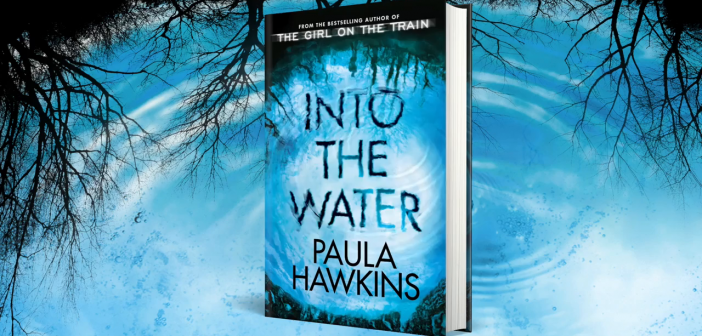A compelling read which stands apart from Hawkins' other novel, it only falls a little in its use of conventional tropes.
-
8
It seems inevitable, when your first book is as successful as Hawkins’ first, The Girl on the Train, the second would come amidst eager anticipation and lofty expectations. Comparisons to the first work seem primed to be a feature of any review, and it would do the author a disservice to not place her newest work in the context of her body of work, limited though it might be at the moment.
That being said, Into the Water is also a book which should be considered on its own merits. Into the Water focuses on the character of Jules, who is forced to return to the location of her childhood holidays after her elder sister is found dead in a local river. Before her untimely end, Nel is obsessed with the women who have died in this river, in ‘The Drowning Pool’, including her daughter’s best friend who died there a few months before. The novel follows Jules, Nel’s daughter Lena, and the two police officers charged with investigating Nel’s death, as they unravel Nel’s secret’s and those of the people who surround her.
A strength of Hawkins’ books is her writing style – by splitting the narrative between different perspectives, she drip feeds the audience just enough information about the story’s central mystery, and all of the secrets that surround it. With Into The Water, Hawkins has created another compulsive read. She explores vividly and effectively the idea of childhood memory as malleable and suggestible, encouraging the reader to question what they are presented as history throughout the book. Jules is interesting, and although little detail is given in the book about her life aside from how it relates to Nel, the power of Hawkins’ ability to present a character’s psychology shines through particularly in relation to her. Through her thoughts, and perceptions of her history, you feel like you know Jules, although I’m not sure I could give you any details about what she does or what she likes. Instead, we know her through her relationship with her family, through the trauma of her past, and through her complicated feelings towards her sister and niece.
The twists and turns of Into the Water seem a little more conventional than those of Hawkins’ first book, which socked you in the stomach with its final, heart hammering twist. Instead, the secrets revealed over the course of this narrative are plot points familiar to anyone who reads thriller and psychological fiction on a regular basis. There are points in the narrative where the information drip fed to the reader can easily be predicted, before a ‘secret’ is revealed. That being said, the book is not weaker for the nods to convention, as Hawkins prose style consistently brings new life to some old tropes. And the final twist of the novel, reserved for the last few pages, will simultaneously feel completely inevitable in the context of the narrative, and yet also shake your perceptions of the characters presented to you.
A review of a second book probably should ask the question of whether it is better than the first. I’m not sure that I can answer that. Girl on the Train stands alone, and Into the Water should too. Is it worth picking up? Undoubtedly. A compelling read that engages from start to finish, which incites you to ask yourself questions about the nature of your own childhood memory, Into the Water is certainly one of the best books of 2017.
Into the Water is available now.




